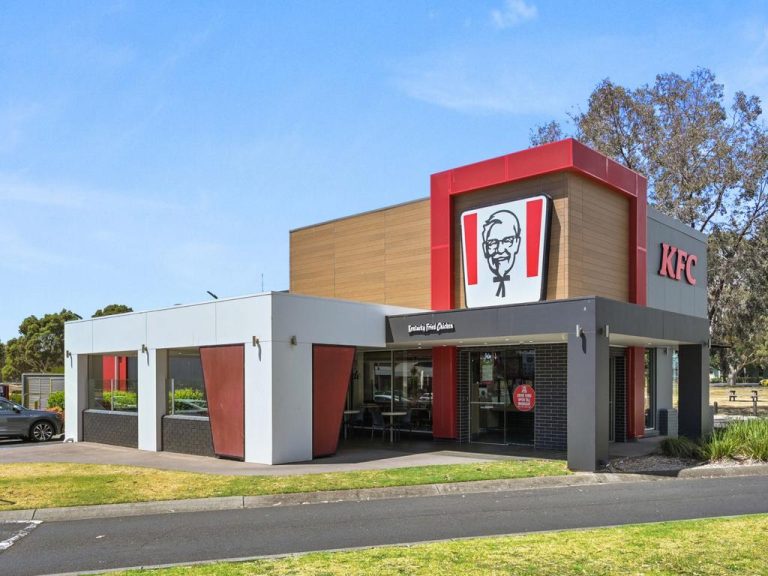Next industrial revolution will lead to transformation of major cities, says Martin O’Malley

Martin O’Malley believes the world is fast moving into another Industrial Revolution that will first be seen in major cities. Picture: AFP
The next industrial revolution is coming, one based on three fundamentals: energy, communications and transportation.
That is the view of former US governor for Maryland and mayor of Baltimore Martin O’Malley, who believes city leaders should be preparing for the raft of opportunities approaching as the world comes out of the pandemic period.
Major cities across the world have experienced quiet streets and empty sidewalks over the past 18 months as the pandemic highlighted the mechanisms that keep them running on a day-to-day basis. But as new pressures weigh – the mass flight from major cities to the regions and shift to flexible work arrangements – city structures are sure to change over the coming years and decades.
“Cities are remarkably resilient and adaptive,” Mr O’Malley said.
“The future of humankind on this planet is going to depend on liveable, connected, healthy, secure cities
“I think you’re going to see the evolution of or the return of the 15 minutes city, where people not only work but where they can also live, play, worship and enjoy the amenities of life. Leaders of cities have been given permission to reconsider space … (so) it can be redesigned for the health of people.”
Technology will be at the heart of forward thinking. Mr O’Malley believes the world is fast moving into another Industrial Revolution that will first be seen in major cities. While previous revolutions have been built on rail, coal and telegraph and, later, cars, oil and telephones, he believes the next will be anchored on the internet, automation and renewable energy.
“In finetuning this transition so that it serves humanity and the goal of wanting the next generation to live healthier, fuller, more secure lives, cities are going to be critically important,” Mr O’Malley said.
“The distributed grid, electric vehicle charging stations, access to affordable broadband, all of these are things where I’m looking for city leaders to step up and take greater ownership of their city’s destiny in this new industrial revolution. Be at the forefront of that wave of change, rather than a lagger.
“Cities that make themselves more mobile, more connected are going to be the winners of the future in terms of jobs, opportunities, and social advancement, and by that I mean have the ability to mitigate against the excesses of income inequality and make these new common platforms not only digitised, not only decarbonised but also democratised.”

Former US governor of Maryland Martin O’Malley said cities are bracing for a new tech-led industrial revolution.
Mr O’Malley will discuss some of these points in his keynote appearance at next month’s virtual 2021 Asia Pacific Cities Summit, a Brisbane City Council initiative designed to bring together civic leaders from across the world.
Brisbane will be embarking on the next decade post-pandemic with another goal in mind, the 2032 Olympic and Paralympic Games. Pitched as a carbon-neutral and “future-proofed” event, the city and broader southeast region will be ripe for a slew of infrastructure additions and upgrades in the coming years
An organising committee for the Olympic Games will be established ahead of the 2032 Games to help guide and deliver the infrastructure needed to facilitate the Games, which are anticipated to inject $8.1bn into the Queensland economy.
“Not only does Brisbane have the catalyst, the impetus, the accelerator of these Games coming … you can have the added benefit of a big vision of making these games carbon neutral,” Mr O’Malley said.
Brisbane Lord Mayor Adrian Schrinner said the city had been dedicated to sustainability long before the games decision, citing its commitment to city-shaping projects like the Brisbane Metro and several green bridges to interconnect the two sides of the river city, which will only complement the Games projects.
“Hosting the largest sporting event in the world will stimulate urban renewal and growth, create more housing, business precincts and parks and bring long-lasting benefits for the local community for all residents to enjoy,” Mr Schrinner said.
“In Brisbane, our focus over the next decade will be to deliver smart infrastructure that will cater for the needs of our growing population and the millions of people that will flock to our city for the games.”
The 2021 Asia Pacific Cities Summit will be held virtually from September 8-12. Registrations are open.







